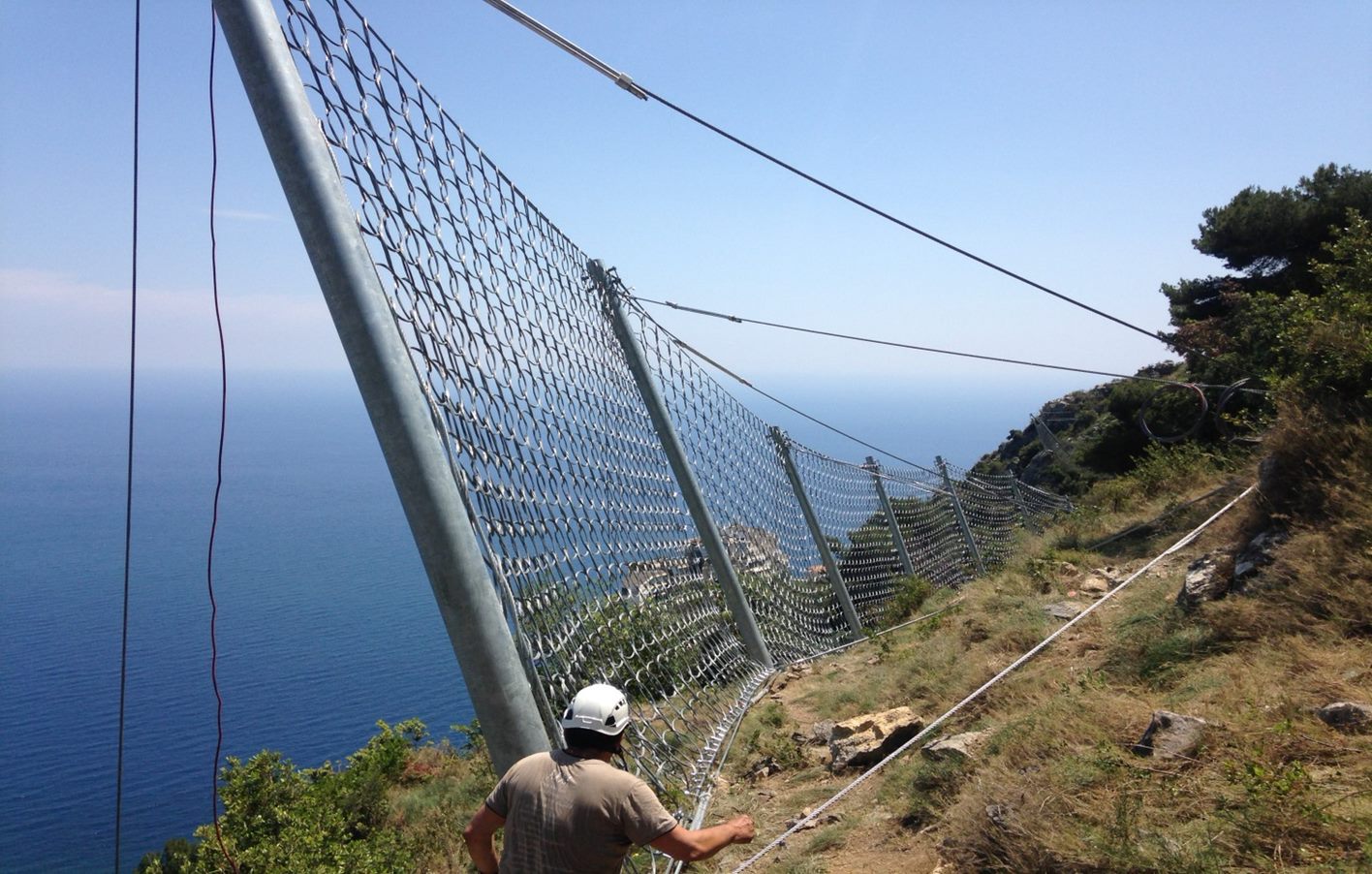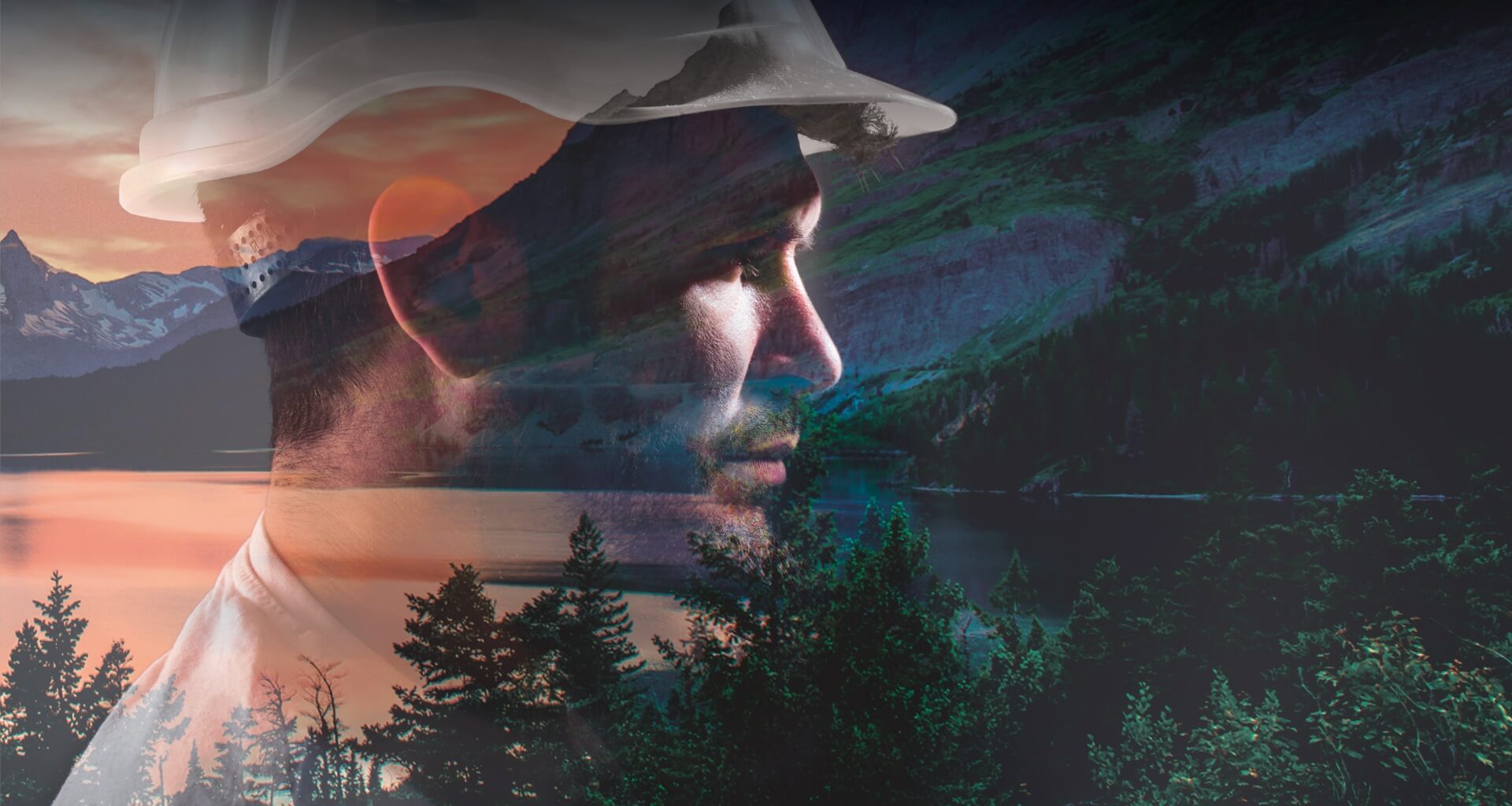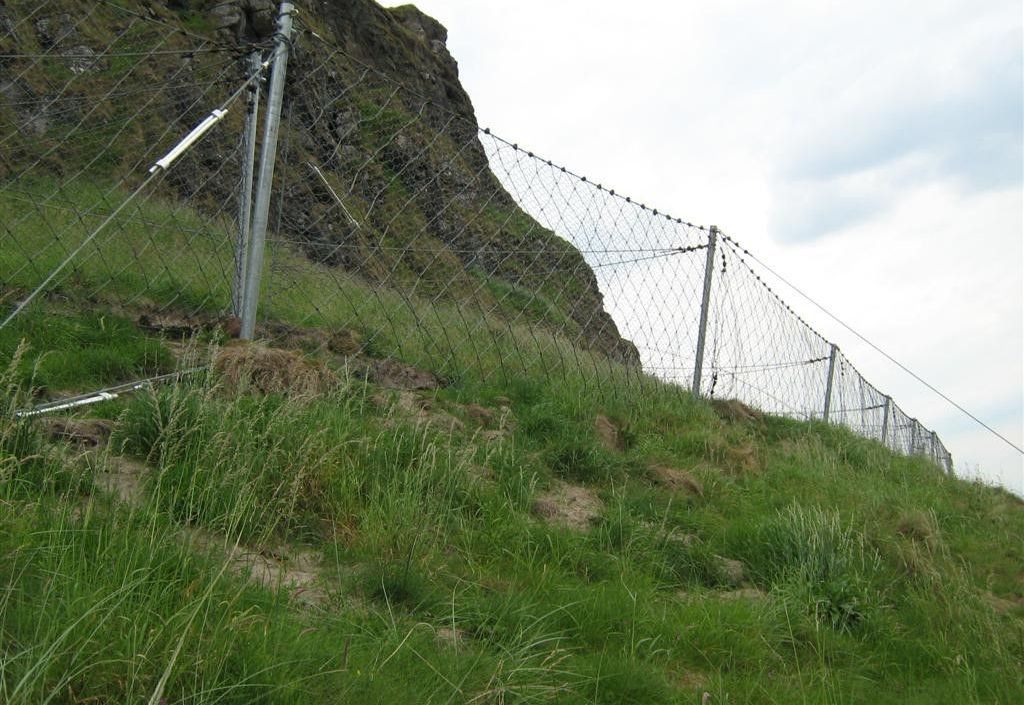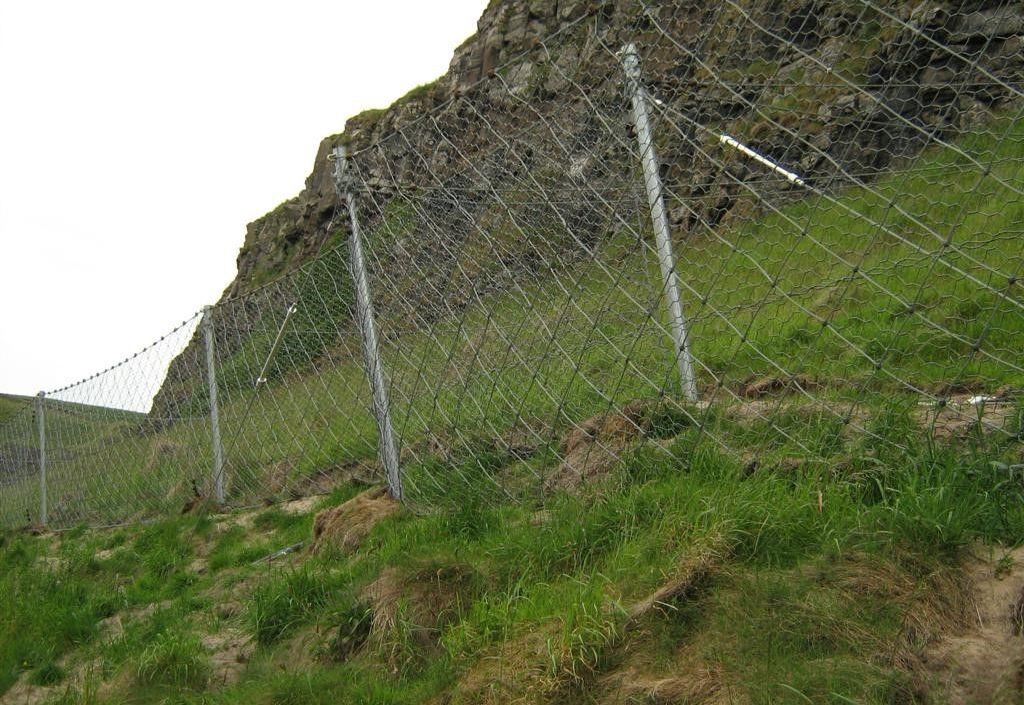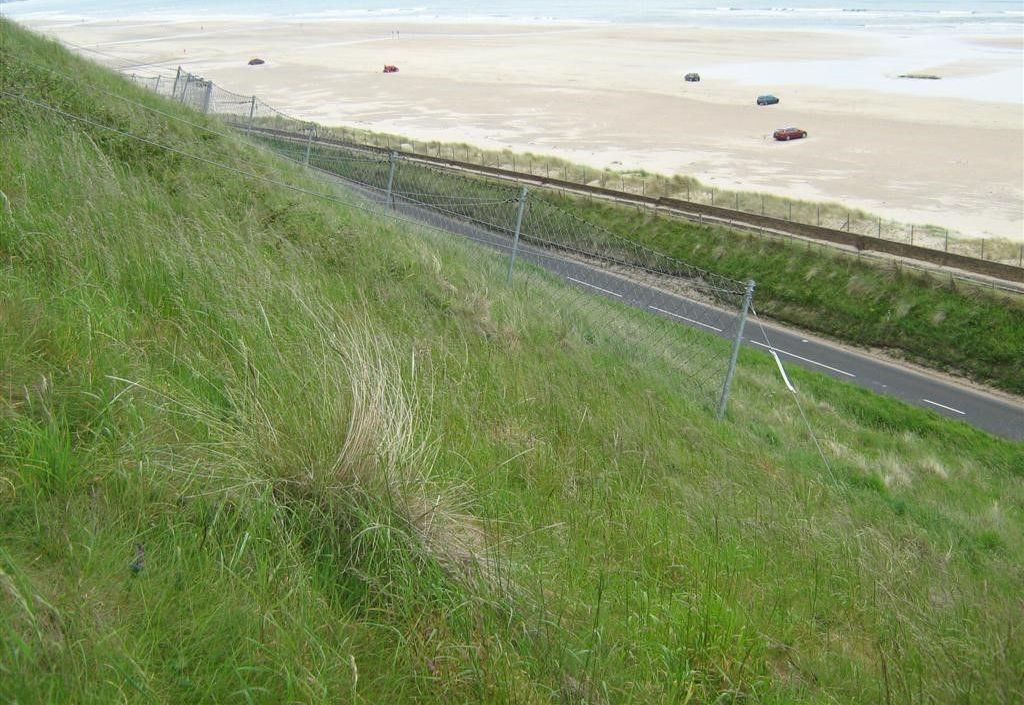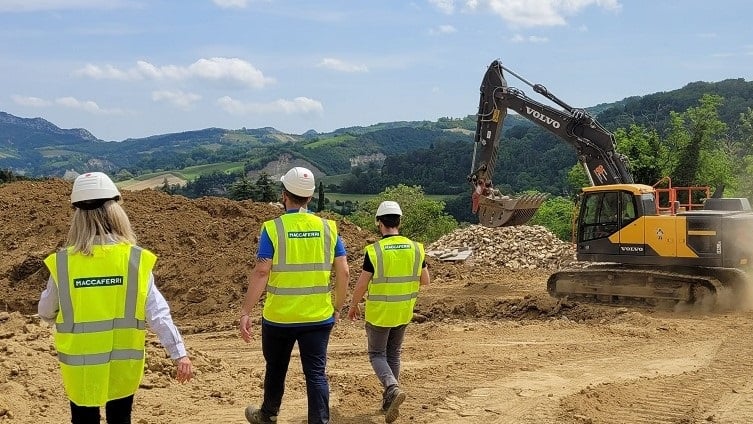Dynamic Barriers
2011
Coleraine, Northern Ireland
Northern Ireland Railways
Skye Rope Access
URS
A2 Downhill
Problem
The A2 Seacoast Road and neighbouring rail line, hug the exposed coastal strip through an area of outstanding natural beauty and, at a point a few miles to the west of Coleraine, pass beneath a steep rocky out-crop at Downhill. The Downhill site has a long history of rockfall, the most serious of which, in 2002, caused a derailment and lead to the installation of a concrete crash barrier next to the line to prevent further incursions.
Mindful of the potential dangers to both road and rail travellers, the Northern Ireland Department for Regional Development, Road Services, commissioned URS / Scott Wilson to undertake a detailed assessment of the site. The north-facing cliffs at Downhill are made up of layers of heavily jointed basalt – a volcanic material similar to the rocks that make up the Giant’s Causeway. Weaker layers of rock have weathered more quickly which has made overlying layers unstable, causing significant rock fall.
The lower slopes of the 60-metre-high cliffs are made up of grass-covered wind-blown sands which form a natural pathway along which break-away blocks of stone roll before they reach the road and rail line at the foot of the cliff. Individual blocks as big as 1.0m cube and weighing 2700kg, roughly the equivalent to a VW Golf with four people and their luggage, have fallen down the slope. Potential velocities, before they hit the road, were up to approximately 15m/s (33mph).
Solution
The A2 Seacoast Road and neighbouring rail line, hug the exposed coastal strip through an area of outstanding natural beauty and, at a point a few miles to the west of Coleraine, pass beneath a steep rocky out-crop at Downhill. The Downhill site has a long history of rockfall, the most serious of which, in 2002, caused a derailment and lead to the installation of a concrete crash barrier next to the line to prevent further incursions. Mindful of the potential dangers to both road and rail travellers, the Northern Ireland Department for Regional Development, Road Services, commissioned URS / Scott Wilson to undertake a detailed assessment of the site.
Used Products
